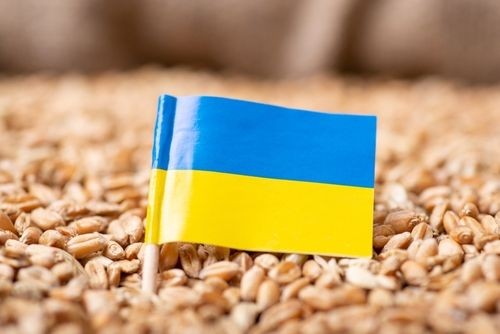What is the future for the Middle East?
Russia's invasion of Ukraine has raised questions about the future of the Middle East, writes Ahmed Abdel -Rahman
Russia's invasion of Ukraine will have severe repercussions for the whole world, the Middle East included.
Several Middle Eastern countries are looking to balance their relations with the US and Russia, and many are stuck in the middle as the conflict in Ukraine unfolds. However, most importantly, in the future this conflict will affect many sectors of these countries' economies, starting from oil and gas, to agricultural imports and tourism. There may be further repercussions that will inevitably lead to increased instability in the region and elsewhere.
The conflict between Russia and the Ukraine is as much about the balance of power between the West, and the US and NATO in particular, and Russia, as it is about the Ukraine and Russia. It is clearly a struggle between the US and Russia over Europe through the expansion of NATO.
Egypt, Lebanon and Libya are among the largest buyers of Ukrainian wheat in the region, with countries such as Yemen and Syria relying on World Food Program purchases of Ukrainian wheat as aid. Egypt, with a population of more than 100 million people, is the largest importer of wheat in the world, and the authorities there are already warning of a shortage of this product. Russia is the main supplier of wheat to Egypt, while Ukraine comes in second place. Hence, shortages could worsen the already dire food security situation in some countries. Nearly 69 million people in the Middle East and North Africa (MENA) are malnourished according to a 2020 United Nations report. This represents about 9 per cent of the global total, many of them in countries badly impacted by conflict.
While countries may be able to purchase grain from other sources, they will be hampered by the fact that prices of all commodities will remain high. There will also be rising energy costs that inevitably complicates the situation. However, is it is wheat that is the most affected commodity.
However, the rise of oil and gas prices will make it easier for Arab countries producing these commodities to support their budgets. For the Arab countries that do not produce oil or wheat, conditions will be more difficult than they are now. The working classes and the poor in many countries, Syria, Lebanon and Tunisia in particular, are already finding it difficult to make ends meet.
How the Ukraine-Russian war is magnifying existing problems in the Middle East
The Ukrainian -Russian war is magnifying the problems caused by existing conflicts in the Middle East, such as the Civil wars in Syria and Yemen.
Since Russia is able to use its veto at the UN Security Council, on which it is currently chair, an estimated four million Syrians may have to depend on aid. Hence, there is pressure on Turkey to take in more refugees. (Already it has taken in about 3.7 million Syrian refugees). As the shortage of wheat and other grains increase and the price rises, there could be more forced migration in the eastern Mediterranean.
Russia may also seek to increase pressure on Europe by further fueling the conflict in Libya.
Russia can also complicate international diplomacy on the Iran nuclear issue. Although talks about the Iran Nuclear Deal formally known as the Joint Comprehensive Plan of Action (JCPOA), continue in Vienna, Austria, despite Russia's invasion of Ukraine, successful negotiations will still require a careful implementation process. And Russia could always be a disruptor. Where does this leave the Middle East going forward?


Comments